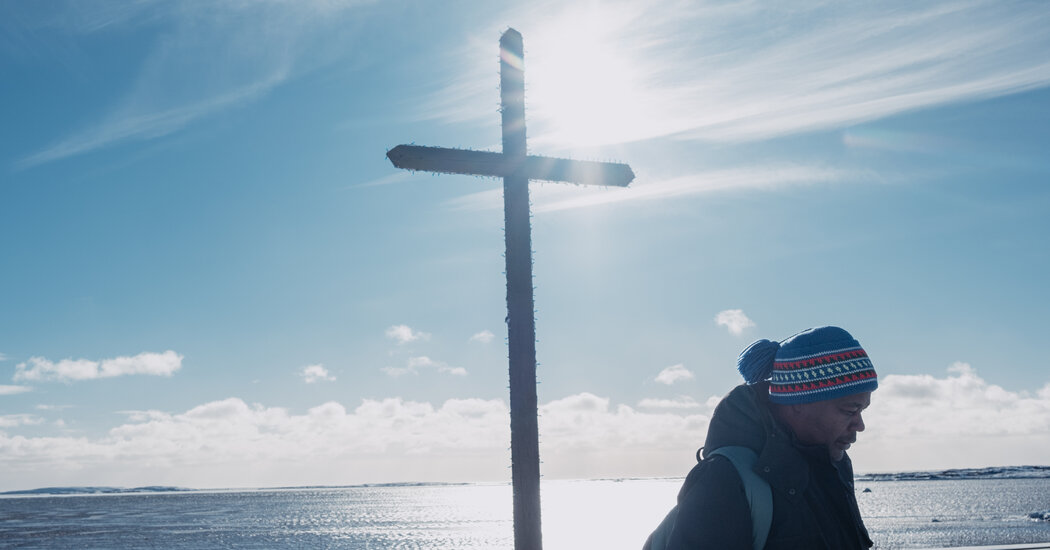Pastor Gérard Tsatselam! embarked on a ferry and settled in his regular seat, on a reclining chair, at the rear of a cold, unlit room that would be crowded in the summer. Feeling uneasy, he sat covered in his large, black coat as the winter winds delayed the boat’s arrival in the village where he was trying to save the church. Except for a brief stop for a funeral, he had not visited his parish — in Unamen Shipu, an Indigenous reserve on the frigid, isolated coast of northeastern Quebec — in months. Mold had invaded the presbytery and left him scrambling for accommodation on each visit. Another reason for his unease was the lasting repercussions of accusations of sexual and other abuses by a predecessor, a Belgian priest. Although the transgressions dated back decades, during what Father Gérard referred to as the “colonial” era of the Roman Catholic Church, dealing with the parishioners’ anger and distrust had become his responsibility as a priest and missionary from Cameroon.
Father Gérard had served as Unamen Shipu’s priest for four years, with his predecessor long deceased, when the accusations surfaced in 2017. “The moment they came out, the dynamics changed,” he said before boarding. “There’s a before and an after.” He had witnessed most of his parishioners breaking ties with the church. Now, upon returning to Unamen Shipu, Father Gérard planned to comfort his diminishing congregation and restore the faith of those who had left. He aimed to alleviate the anger that had fueled threats to burn down the presbytery and to throw his predecessor’s body into the Gulf of St. Lawrence. “It’s a complex terrain,” Father Gérard said. “People are still Christian. They’re religious, they believe, they still have faith. But they’re really hurting a lot.” “Too much,” he added after a pause, almost inaudibly.
Bahasa Indonesia mana pesan unsurafa yang kau nilai penting?
